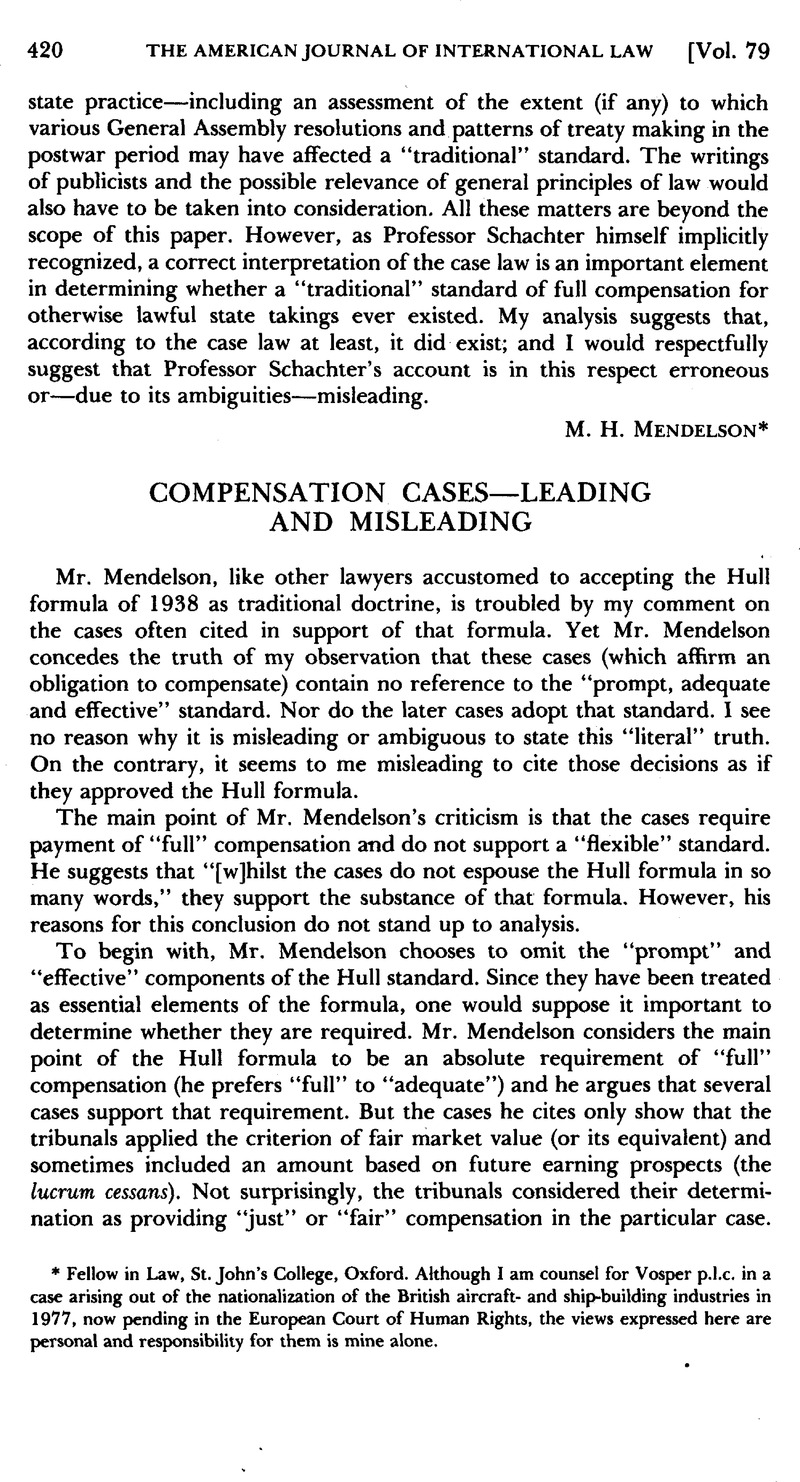Published online by Cambridge University Press: 27 February 2017

1 See Arbitration between Kuwait and American Independent Oil Co. [AMINOIL], Mar. 24, 1982, 21 ILM 976 (1982).
2 Restatement (Second) of the Foreign Relations Law of the United States §§187-188 (1965).
3 Sohn, & Baxter, , Responsibility of States for Injuries to the Economic Interests of Aliens 55 AJIL 545, 560 (1961)Google Scholar (“less than full value would be just compensation when the state would otherwise have ‘an overwhelming financial burden’ “).
4 See also 3 Lillich, R., The Valuation of Nationalized Property in International Law 14-21 (1975)Google Scholar; Rubin, S., Private Foreign Investment 11-23 (1956)Google Scholar.
The U.S. Supreme Court, in applying the standard of just compensation under the Fifth Amendment, said:
The Court in its construction of the constitutional provision has been careful not to reduce the concept of “just compensation” to a formula. The political ethics reflected in the Fifth Amendment reject confiscation as a measure of justice. But the Amendment does not contain any definite standards of fairness by which the measure of “just compensation” is to be determined.
United States v. Cors, 337 U.S. 325, 332 (1948).